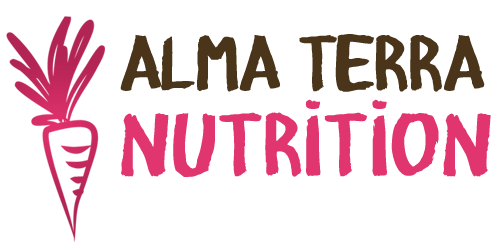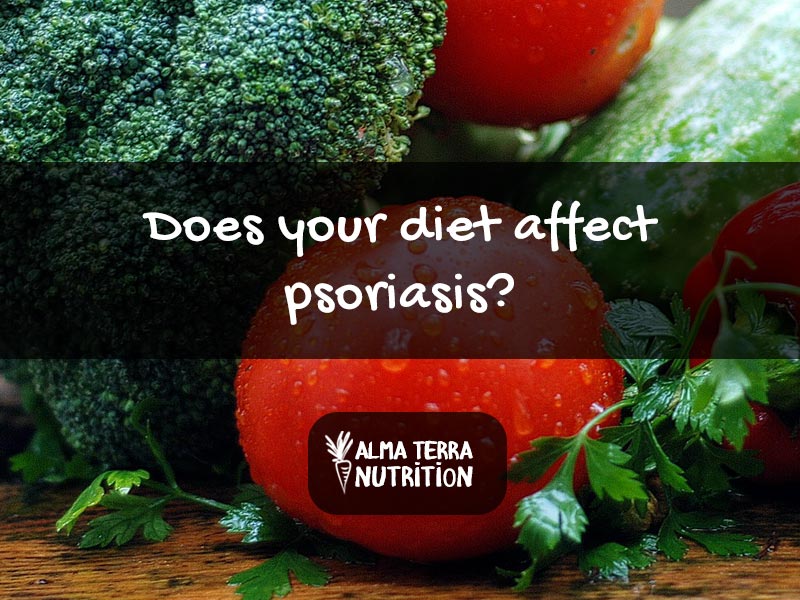In this article, I discuss the relationship between diet and psoriasis and how to ease symptoms. I also specify which foods to avoid and consume.
What’s psoriasis?
Psoriasis is an inflammatory skin condition that is caused by an overzealous immune system. Rather than attacking infectious germs, immune cells destroy healthy tissue. To compensate, the body produces new skin cells much faster than normal. However, old cells can’t shed fast enough for replacement by new skin.
As dead cells accumulate, they form thick, scaly patches called “plaques.” Common sites are the scalp, palms, elbows, knees, torso, and soles of the feet.
Scientists have learned that specific genes govern psoriasis. Lifestyle and nutrition are also involved.
Episodic flares
Initially, plaques can be a reaction to elements that activate psoriasis genes. Examples are:
• infections – strep throat
• skin injuries – insect bites, severe sunburn, scrapes, cuts
• drugs – lithium, beta blockers, indomethacin
• weather changes – transitioning to winter
• stress – tension-producing thoughts and emotions
• weak liver – inadequate filtering of toxins
• lifestyle factors – smoking, alcohol, insufficient sleep, unhealthy diet
Once psoriasis develops, it can exhibit cyclic patterns. You may be symptom-free for months or even years. Then, a flare can erupt, launched by a trigger, such as those above.
Leaky gut
Recently, intestinal permeability is being investigated as contributory. For you to assimilate nutrients from food, they must move through the intestinal wall. When the membrane is too lax or “permeable,” bacteria and their toxins also pass through, into the bloodstream. This intestinal laxity is commonly called “leaky gut.”
Our bodies have several ways to evacuate waste. Primary among them are the liver, kidneys, lungs, and intestines. When these organs don’t function optimally, toxins accumulate inside us. Then, our skin takes an active role in helping to dispel impurities.
Doctors diagnose leaky gut by the presence of specific toxins in urine and antibodies in blood. Some studies show a higher incidence of leaky gut among people with psoriasis. Researchers surmise that waste products escaping the intestine are eliminated through the skin.
Aggravating foods
Certain foods can worsen psoriasis symptoms. While dietary triggers vary by individual, here are some worth avoiding:
1. Acidic and Acid-Forming Foods
Acidic foods disrupt the acid-base balance of the body, thereby inflaming skin. Prime culprits are red meats, cold cuts, cheese, white sugar, and refined flour. Although alcohol isn’t a food, liquor increases blood pH, acidifying it. Our bodies function better in an alkaline state, when a low pH predominates.
2. Nightshades
Some people with psoriasis react to nightshades, foods in the botanical family “Solanaceae.” Members of the nightshade family include tomatoes, eggplant, white potatoes, peppers, okra, goji berries, tomatillos, paprika, and cayenne pepper. Tobacco is a nightshade, too.
3. Chemically Processed Foods
Foods to which chemicals have been added are considered “processed.” Inflammatory ingredients to avoid are preservatives, artificial colors, texturing chemicals, refined white flour, artificial flavors, saturated fat, hydrogenated oils, and white sugar.
4. Allergens
In some people, gluten, dairy, eggs, and soy trigger psoriasis outbreaks. Gluten, in particular, is associated with inflammatory diseases. Gluten is the protein that imparts elasticity and chewiness to baked goods.
When a person is gluten-intolerant, their immune system launches an attack on beneficial flora and the intestinal lining. This cellular damage prevents the absorption of vital nutrients. Likewise, it prompts overpopulation of harmful bacteria and the inflammatory compounds they secrete, called “endotoxins.” These byproducts cause cramping, bloating, and diarrhea.
Gluten is present in wheat, barley, brewer’s yeast, bulgur, couscous, durum, einkorn wheat, emmer, farina, farro, graham flour, kamut, malt, rye, semolina, spelt, and triticale.
Elimination diet
When unsure if you’re intolerant to certain foods, it’s helpful to omit them for a certain period of time. If symptoms wane while avoiding suspects, you’ve identified inflammatory triggers. If you’d like to try an elimination diet, I can guide you through the process.
Anti-inflammatory foods
Certain foods improve digestion, ease inflammation, and support beneficial intestinal flora.
Here’s what to emphasize in your diet:
1. Omega-3 Fatty Acids
These healthy fats boost immunity. Excellent sources are ground flax seeds, walnuts, hemp and chia seeds. While fatty fish are options, they’re often contaminated with toxic pollutants, such as mercury.
To lower mercury consumption, eat small fish, such as mackerel, cod, flounder, haddock, herring, salmon, sardines, sole, tilapia, and trout. Eat no more than 12 ounces of low-mercury fish per week.
2. Fresh Fruits and Vegetables
The antioxidants in fresh produce protect against inflammation. When available, buy organic and locally sourced.
Also, eat a variety of colorful types, especially blueberries, carrots, spinach, squash, and sweet potatoes.
3. High-Fiber Foods
Fiber feeds healthful intestinal bacteria. Choose gluten-free grains, including amaranth, buckwheat, millet, quinoa, sorghum, and teff.
While oats don’t contain gluten, when milled, they often come in contact with wheat, resulting in contamination. Only eat oats that are guaranteed gluten-free.
Also, consume legumes, such as lentils, beans, and peas.
4. Oily Seeds
In addition to hemp, flax, and chia, eat oily seeds. Their minerals, trace elements, enzymes, fatty acids, and fiber prevent inflammation.
Buy fresh, hulled seeds, such as pumpkin, hemp, sunflower, and sesame.
5. Sulfur
Sulfur activates liver enzymes, needed for detoxification. This mineral also strengthens collagen, a vital skin protein.
Sulfur-containing foods are asparagus, avocado, broccoli, chives, Brussels sprouts, garlic, leeks, kale, cabbage, onion, cauliflower, radishes, collard greens, and watercress.
Note – If you also have ulcerative colitis, do not eat sulfurous foods since they’re known to worsen symptoms.
6. Cultured Foods
Beneficial bacteria are termed “probiotics.” Present in fermented foods, probiotics aid immune function, digestion, and liver detoxification.
Good sources of probiotics are kimchi, kombucha tea, and fresh sauerkraut. Here’s further information on probiotics.
7. Anti-Inflammatory Spices
Turmeric
This is the orange-yellow spice present in curry. Curcumin is the active compound in turmeric that lowers inflammation. For curcumin to be fully assimilated, you must combine turmeric with black pepper and healthy fat.
Take a daily tonic made with 1 teaspoon turmeric powder, ¼ teaspoon ground black pepper, and 1 teaspoon olive oil. After mixing, add to a smoothie, vegetables, or salad.
Ginger
This warming spice has compounds that block the release of pro-inflammatory hormones. Ginger also nudges food through the digestive tract, preventing toxins from accumulating.
Make ginger tea, either with store-bought tea bags or by mixing ½ teaspoon powdered ginger in hot water. You can also sprinkle ground ginger on food, such as steamed vegetables.
Mono food diet
This cleansing diet involves eating only one food for meals, typically a fruit. The Apple Diet is a popular mono food plan, during which you consume only apples during three consecutive days.
Apples have the advantage of being low-sugar, with pectin fiber that sweeps food through the intestine. Organic apples are the most healthful.
Since mono diets are quite limiting nutritionally, they’re only safe for a maximum of three consecutive days, up to three times per year. Another detoxifying option is an occasional fast.
Both mono food diets and fasting help trim excess pounds, which also reduces psoriasis symptoms.
If you’re interested in a cleansing diet, contact me for guidance.
Stress management
Along with dietary modification, psoriasis improves with stress reduction. Dedicate time each day to relaxation techniques, such as meditation and yoga. Consider exploring sophrology, a relaxation practice combining deep breathing, concentration, visualization, and gentle exercise.
Also vital are emotional, psychological, and social support. If you’re haunted by unpleasant thoughts and feelings, psychotherapy can help you break free. For additional coping skills, join a psoriasis support group.
Hypnosis is worth trying, harnessing the power of your subconscious mind to promote healing.
Nutritional defense
In many cases, being selective with food decreases plaque formation. I can testify to this fact, having been subject to psoriasis. I can also vouch for the healing effect of maintaining a positive outlook.
As a holistic nutritionist specializing in skin health, I’m delighted to guide your food choices! While a miracle cure for psoriasis doesn’t exist, a healthy, balanced diet will upgrade the way you look and feel.
Josephine Beck
Certified Holistic Nutritionist




